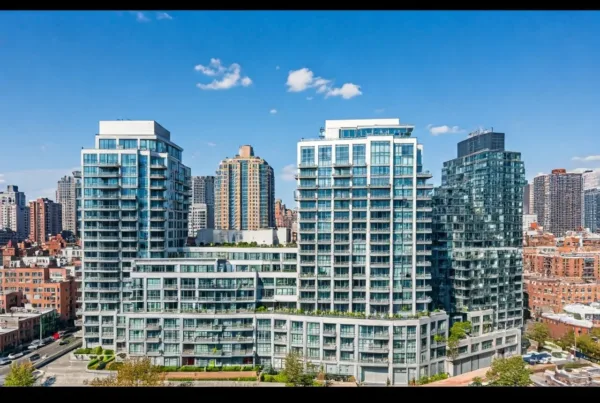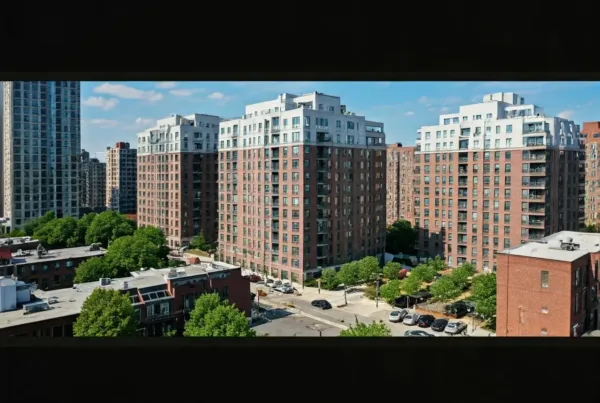Discover the secrets to buying a co-op sponsor unit in 7 simple steps – your path to owning a piece of NYC!
Table of Contents
Welcome young readers! Have you ever wondered what it’s like to buy a special kind of home called a sponsor unit in a co-op building? Let’s take a fun journey to learn all about it!
Many people dream of having their own place to live, and a co-op sponsor unit can help make that dream come true. In a co-op, people own parts of a building together instead of each owning their individual unit. When you buy a sponsor unit, you get to buy a home that the original owner, or sponsor, sells directly to you. This can make things easier and quicker!
In this guide, we will show you easy steps to understand how to purchase a co-op. You will learn how to find a sponsor unit for sale nyc, what to look for when visiting units, and how to make your offer. By the end, you will be ready to step into the exciting world of buying a unit!
Understanding a Sponsor Unit
Before we dive into the steps, let’s understand what a sponsor unit is. It’s a type of home in a co-op where the original owner, called the sponsor, sells directly to a buyer. This kind of unit is unique and comes with some special features that can make the buying process easier.
What is a Co-op?
A co-op, which stands for cooperative, is like a big puzzle made up of many homes. In a co-op building, the entire building is owned by a corporation. Each person living there doesn’t actually own their specific unit but owns shares in that corporation. These shares give them the right to live in their unit. So, it’s a bit like being part of a team where everyone shares the building!
Difference Between a Co-op and Sponsor Unit
A sponsor unit is a co-op unit but is special because it is owned by the building’s original sponsor. The sponsor is a person or a company that built the co-op. When you buy a sponsor unit, you get some benefits that regular co-op buyers don’t always have. One of the best perks is that buying a sponsor unit often means you won’t have to get permission from a board before you buy. This can make the whole process quicker and easier, which is pretty awesome!
Steps to Find a Sponsor Unit
Now, let’s learn how to find a sponsor unit for sale nyc that you can buy!
Starting Your Search
The first step is to start looking for listings of sponsor units. You can look online or ask real estate agents for help. Websites like Zillow or StreetEasy are great places to find sponsor unit co-op options. Just type in what you’re looking for, and soon enough, you’ll see a list of available units!
Understanding Listings
When you find different units, make sure to read the listings carefully. You want to check if it’s a sponsor unit. The listing should mention “sponsor unit” directly, so keep an eye out for those words. This way, you know what you’re getting into!
Contacting an Agent
If you see a listing that looks interesting, don’t hesitate to contact a real estate agent. They can give you more details about the unit and help you with the next steps. Real estate agents are experts and can schedule visits for you. Plus, they know a lot about the market, which makes your search easier!
Visiting and Evaluating Sponsor Units
It’s important to visit and evaluate the sponsor unit before deciding to buy it. This step is crucial in making sure you are happy with your choice.
Scheduling Visits
First, make appointments to visit the sponsor units you are interested in. You will want to see the units in person to check their condition. It’s like trying on shoes before you buy them—you want to make sure they fit and feel good! During your visit, look around and notice if the unit meets your needs
Evaluating the Condition
When visiting, look out for any necessary repairs. Pay attention to things like the walls, floors, and appliances. Check if the utilities, like water and electricity, work well. This is also a great time to see if the space feels right for you. If you have questions, don’t hesitate to ask them during the visit. The more you know, the better your decision will be!
Comparing Units
After visiting a few sponsor units, it’s helpful to compare what you’ve seen. Think about their condition, location, and price. Each unit may have something special! Make a list or take notes to help you remember each unit’s features. Comparing will help you find the best fit for your needs.
Making an Offer
Found the perfect sponsor unit? Great! Let’s talk about making an offer. This step is very important because it’s how you tell the seller that you want to buy their place. Making an offer shows you are serious about buying the unit.
| Step | Description |
|---|---|
| 1 | Research co-op sponsor units available in desired location |
| 2 | Contact the sponsor or their representative for more information |
| 3 | Attend an open house or schedule a private showing of the unit |
| 4 | Review financial requirements including down payment and closing costs |
| 5 | Submit a purchase offer to the sponsor with desired terms |
| 6 | Receive acceptance or negotiation of offer from sponsor |
| 7 | Sign purchase agreement and make necessary payments |
| 8 | Attend closing meeting to finalize purchase |
Working on an Offer
First, you need to work on the offer. Talk with your real estate agent about the right price to suggest. They can help you understand what different units are selling for. It’s also a smart idea to have your finances ready. This means knowing how much money you can spend without going over your budget. You should think about your highest price—this will help you make the best offer!
Benefits of No Board Approval
One of the best parts of buying a sponsor unit is that you might not need board approval. In a regular co-op, the board (a group of people who manage the building) often has to approve who can buy a unit. But with a sponsor unit, there is usually no board approval for sale. This makes the whole process faster and easier. You can skip some waiting around and get your new home sooner!
Finalizing the Deal
Once your offer is accepted, it’s time to finalize the deal. This means you will sign contracts to make everything official. After signing, you will set up your payments. Congratulations, you’re close to owning your sponsor unit! Just a few more steps, and you’ll be moving into your new home.
Summing It All Up
You did it! You learned all the steps to buy a sponsor unit in a co-op. Let’s quickly go over what we’ve covered.
Reviewing the Steps
We started by understanding what a sponsor unit is. It’s a type of home where the original owner, known as the sponsor, sells directly to buyers like you. We also talked about finding a sponsor unit for sale, and how to look for listings online or with the help of real estate agents.
Next, we talked about visiting and evaluating sponsor units. This means checking how the unit looks, if it’s in good condition, and whether it fits your needs. Remember to compare different sponsor units too, so you can choose the best one.
Finally, we covered how to make an offer on the sponsor unit. It’s great news that you might not need board approval for the sale, which can make the whole process much faster. You now know how to finalize the deal and soon you could be a proud owner of a sponsor unit in a co-op!
Frequently Asked Questions (FAQs)
Here are some common questions you might still have about buying a sponsor unit.
Do I need to pay any fees?
Yes, there are usually some fees like closing costs. Make sure to discuss these with your agent. They can help you understand what fees you’ll need to pay when finalizing your purchase.
How long does the process take?
It can take a few weeks to a couple of months, depending on how quickly each step is completed. When you find the right sponsor unit, be patient as you go through the steps of making an offer and closing the deal.
Can I renovate my sponsor unit?
Begin your search and start earning cash back!
Yes, but make sure to check any building rules or regulations about renovations. Some buildings may have specific guidelines that you need to follow. It’s a good idea to ask your real estate agent or the building’s management before starting any work.







